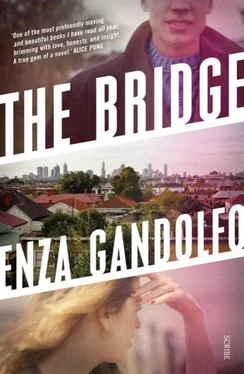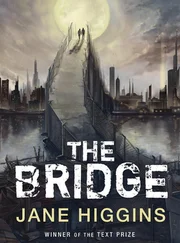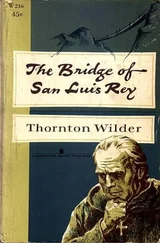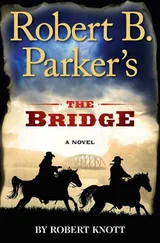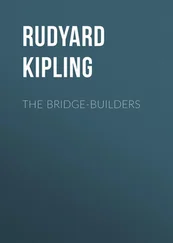‘But it doesn’t seem right that I can keep living.’
Blindness, death, a desire to stop witnessing and living — he understood these urges. They were impossible to argue against. ‘I loved my granddaughter. She was perfect,’ he said, and could sense the tears coming. Soon he would be weeping in front of this girl. ‘I wanted her to have a long and beautiful life. To be happy. To have a magical life, where everything worked. If I could, I’d give my life so that she could live hers. But it’s not possible. If you die, that will cause more misery. It won’t bring Ashleigh back. For the people you love, the best thing you can do is forgive yourself and allow yourself to live.’
‘I hear Ash’s voice all the time. She’s in all my dreams,’ Jo told him.
Antonello nodded. ‘It’s not Ashleigh haunting you, it’s your own grief and guilt.’
‘I need to tell you something,’ Jo said. ‘We were arguing that night.’
‘Friends argue sometimes.’
‘We argued because I was scared she didn’t want to be my friend anymore.’
‘If only we knew when we were going to die, when our friends, the people we love, are going to die, we could make sure we weren’t fighting, that our last words are the right ones.’
‘There’s something else,’ Jo said. Behind them, the council rubbish collection truck pulled up and a man climbed out. Jo paused. He was a council worker, in a green work vest and shorts, a stout man with a round belly and thin legs. He glanced in their direction but didn’t say anything. They watched him take a wheelie bin from the back of the truck and roll it along the boardwalk.
‘What is it?’ Antonello asked, and then regretted it. He preferred not to be told secrets, even in his own family.
Jo sighed, and Antonello thought she had changed her mind. ‘I’ve got a box of Ash’s journals,’ she said.
‘Her journals?’
The council worker had exchanged the empty bin for a full one and was now rolling it back up the boardwalk. He hoisted the bin into the truck, hesitated again, and watched them for a few seconds. Antonello thought he might call out to them, but he didn’t. He banged the door shut behind him, started the motor, and drove away.
‘Yes, all her notebooks. She wrote in them every day.’
‘Yes, I know,’ Antonello said. Ashleigh and her notebooks, her journals. Are you spying on us? Paolina had teased her sometimes. ‘I heard Rae say something about not having found the journals, about where they might be hidden.’ He remembered that the day after the funeral when he and Paolina went to the house, they’d found Rae in Ashleigh’s bedroom, crawling under the bed. The wardrobe doors were open and all Ashleigh’s clothes were spread on the desk, over the chair. The chest of drawers was empty too. ‘Rae, what are you doing? It’s too soon for all this,’ Paolina had said, assuming that Rae was packing up Ashleigh’s clothes. Rae had avoided their questions. Of course: Rae had wanted the journals.
‘I have them. She kept them in my room, in this old safe. I never paid much attention. Every time she filled one up, she came over and put the next journal in the safe. I mean, we didn’t talk about what would happen to the journals, and I don’t know what to do with them.’
‘Why did she hide them at your house?’
‘Jane found one of her journals and she read it and made jokes about what Ash wrote and told Rae, and Ash was angry. She said she had to keep them away from her family because she thought Rae would read them if she had the chance, so it was safer to keep them locked up in my room. But now I don’t know, I mean, I haven’t… I can’t keep them there forever. Soon I’ll go to prison and I think my mother might sell the house. But I can’t leave the journals and I can’t take them with me, and I can’t leave them for my mother to deal with…’
‘You need to give them to Alex and Rae.’ Antonello tried to give her the time she needed. He’d demand she give the journals back if he had to, but he hoped she’d come to that decision herself. He glanced at the path beyond them, towards Yarraville, and waited.
‘I think sometimes Ash wrote in her journals about how pissed off she was at her mum and dad and Jane. It might be hurtful now, and I don’t know if she’d want her family reading them.’
‘They’ll have to make that decision for themselves, whether they read them or don’t read them. But you have to give them the journals. They don’t belong to you.’
Jo moved away from the memorial to sit on a nearby concrete block. Antonello followed her gaze across Stony Creek, the Backwash, and the Yarra to the outline of the city. He could still recall the view of the city from the half-made bridge almost forty years ago. Over the years, he had watched Melbourne expand in all directions. Often he’d wondered about the impulse that drove developers to build taller and taller buildings, and he’d thought about all the workers, especially the riggers, who put those buildings together. And he wondered if the bridge made all that growth possible.
‘Do you think it will collapse again, the bridge?’ Jo asked.
‘I know it will,’ Antonello said.
He waited for Jo to ask him about the bridge, but she obviously had other things on her mind.
‘I understand that everything that belonged to Ash now belongs to her parents, of course. That’s what the law says, that’s what Sarah says. But I don’t know if that’s what Ash would’ve wanted. If I give them to you, am I betraying Ash? I keep asking her, but she won’t tell me.’
‘Ashleigh is dead, Jo. She can’t tell you. And the Ashleigh you talk to is in your head, is you. You’re hoping and praying and wishing so hard, she seems real. Give the journals to her parents.’
Antonello had his own doubts. Of course teenage girls wrote about their parents, about love and hate. He imagined there were sections of Ashleigh’s journals that Alex and Rae might find difficult, sections that might make them even sadder than they already were. And maybe they’d be better off not to read them.
‘If I give you the journals…’ Jo said. ‘Can I give them to you? Can you give them to Rae and to Alex? Because I can’t take them there.’
‘Sure.’
‘Now?’
‘Yes, now.’
It only took a few minutes to reach Jo’s house. From the street the house was hidden by shrubs and trees. There was an old wire fence, leaning towards the footpath under the weight of several bushes, and an iron gate, rusted at the hinges, a little out of sorts, so that it scraped on the ground as Jo pushed it open. It wouldn’t take much to fix the gate — Antonello had a couple of hinges in the shed that would do. He thought about this as they walked up the path. The house was a rundown weatherboard cottage with a small verandah. Jo opened the door and led him down the hallway, past delicate crystal ornaments on a small bookshelf, to the kitchen. Inside the house was a sharp contrast to the outside: it was old and worn but impeccably clean and ordered.
Jo’s mother was standing at the sink chopping vegetables. In the background, the Eagles were singing ‘Hotel California’, and she was humming along.
‘Mum,’ Jo called, and when Mandy turned around, ‘You remember Ash’s grandfather?’
Antonello watched Jo’s mother’s face turn pale. ‘Oh, yes, of course,’ she said, hesitating and then holding out her hand for Antonello to shake. ‘Please sit down. I’m so sorry for your loss… So sorry. Ashleigh was a lovely girl.’
‘Yes.’
‘I’m so sorry.’
‘I know, Mandy, I know.’
‘Maybe you can make a cup of tea, Mum? I’m going to get Ash’s journals.’
‘ Ash’s journals? You have them?’
Читать дальше
